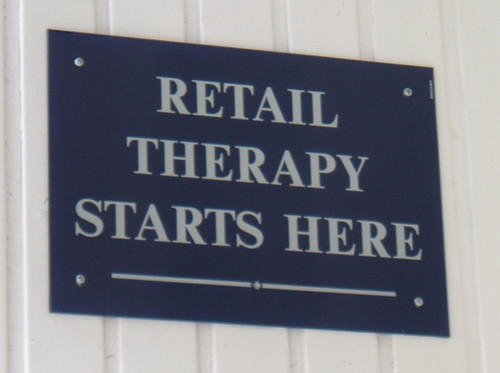Does “retail therapy” work?
.
“Retail therapy” is often applied to the notion of trying to cheer oneself up through the purchase of self-treats. The negative moods that lead to retail therapy, however, have also been associated with greater impulsivity and a lack of behavioral control. Does this lead to mindless shopping when consumers are “down” and regret later? The current work documents that a bad mood does lead to greater purchase and consumption of unplanned treats for the self. However, it also provides evidence that the consumption of self-treats can be strategically motivated. Those individuals who do indulge can also exercise restraint if the goal of restraint also leads to improved mood. Finally, retail therapy has lasting positive impacts on mood. Feelings of regret and guilt are not associated with the unplanned purchases made to repair a bad mood.
Source: “Retail therapy: A strategic effort to improve mood” from Psychology and Marketing, Volume 28, Issue 6, pages 638–659, June 2011
Hat tip to Christian Jarrett. Check out his full analysis at BPS Research Digest. His new book is The Rough Guide to Psychology.
Join over 190,000 readers. Get a free weekly update via email here.
Related posts:
How To Stop Being Lazy And Get More Done – 5 Expert Tips
How To Get People To Like You: 7 Ways From An FBI Behavior Expert
New Harvard Research Reveals A Fun Way To Be More Successful




